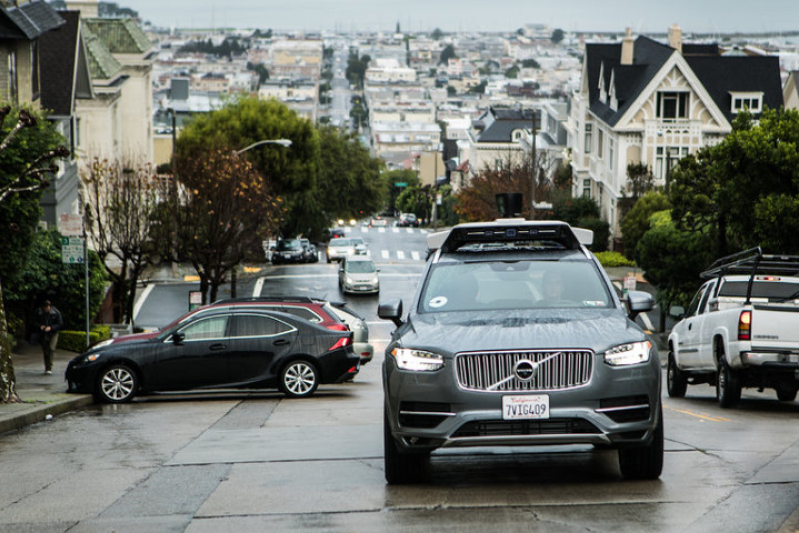
It was not too long ago that we brought you word on how San Francisco became the second city after Pittsburgh to receive the service of self-driving Uber rides, in the form of the luxurious Volvo XC90. Well, a week after that announcement, Uber has decided to remove all of their self-driving vehicles from the streets of San Francisco. The reason behind this move? Not due to competition (or the lack of it), but rather, a more invisible “opponent”, a regulatory crackdown from the California Department of Motor Vehicles.
According to the California Department of Motor Vehicles, registration for all 16 of these self-driving cars from Uber have been removed. In fact, for the whole of last week, the agency did make demands from Uber to cease and desist the self-driving car program because it does not comply with existing regulations -- which basically requires Uber to obtain a permit from the California DMV before they are able to test out self-driving cars on public roads.
According to Uber, they had a workaround concerning this matter. No permit was required (based on Uber’s point of view) simply because they had someone sitting in the car all the time just in case there was an emergency that needed to be attended to. After all, this person, or an emergency driver if you can call him/her, would be able to provide non-stop monitoring of the vehicle.
When approached concerning the matter and the future of these fully autonomous Volvo XC90s, an Uber spokeswoman shared, "We're now looking at where we can redeploy these cars but remain 100 percent committed to California and will be redoubling our efforts to develop workable statewide rules.”
According to the State of California, autonomous vehicles are defined as having the capability to drive "without the active physical control or monitoring of a natural person." Uber is still adamant that such a law cannot be applied to its vehicles, since the Uber rides are not in a perpetual autonomous mode. There will be a driver as well as an engineer in the front seats who are more than ready to take over whenever the situation calls for it, such as navigating through construction zones as well as tackling pedestrian crossings.
A statement from Uber’s Anthony Levandowsk reads, "Safety is of course our top priority as we bring this new technology to cities across America. It’s why we only launched in Pittsburgh and San Francisco after extensive testing, including in our research and development lab as well as on private roads. But real world testing on public roads is essential both to gain public trust and improve the technology over time."
It remains to be seen as at press time whether Uber will do their best to apply for the permit and in a sense, bend over to existing regulations in their home state of San Francisco, or will they decide to bring their self-driving cars to other cities in different states. However, based on what we have seen in their statement so far, it looks unlikely that Uber would compromise on their principles.







